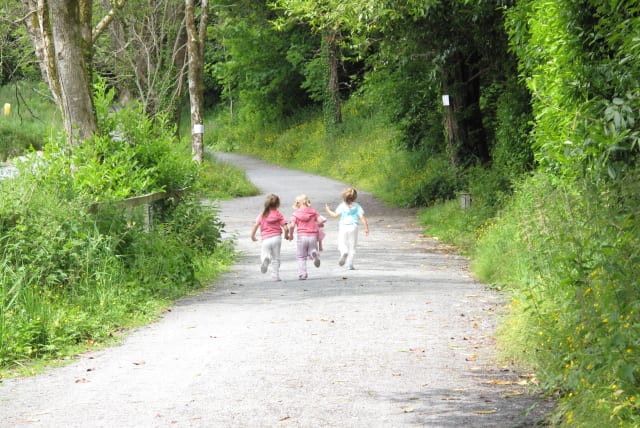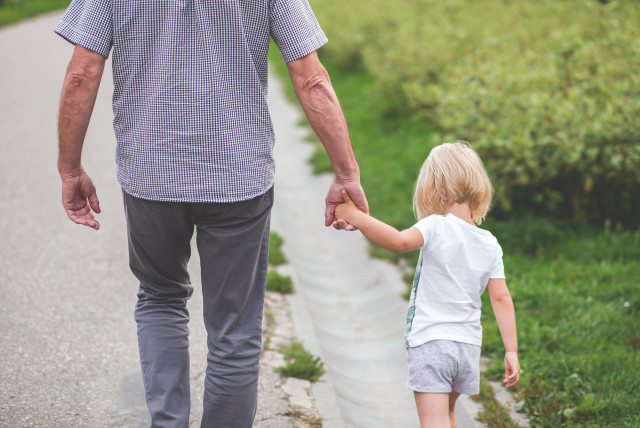Have we reached the 'death knell' for children enjoying spontaneous play?

The research found that the rise in structured physical activity for children happened at the same time as, and possibly caused, a decline in children playing spontaneously.
Eyeing the end of the school vacation in less than two weeks, parents of young children around the world long to slough off some of the responsibility for keeping them amused and occupied.
Yet, British researchers have found that modern-day parenting pressures and expectations are leading to the “death knell” for children enjoying spontaneous play. While parents have always felt some responsibility for their children's development, the heightened intensity of parenting in recent years now means that they are expected to spend more time exhaustively watching and responding to their kids’ desires and behaviors. This leaves less time for children to play independently and learn for themselves the risks and dangers of outdoor play.
According to the study, published in the journal Sociology of Health & Illness under the title “The intensification of parenting and generational fracturing of spontaneous physical activity from childhood play in the United Kingdom,” the intensification of parenting and generational fracturing of spontaneous physical activity from childhood play.
How are parents ruining children's outdoor play?
Even though play was a strategic part of the World Health Organization’s Global Action Plan on Physical Activity 2018–2030 to produce more active and healthier societies, most research on physically active play amongst children in the Western world seems to be motivated by fears that participation rates have decreased over the past few decades and performed a prominent role in the growth of obesity.
Parents are worried that this dearth of spontaneous play means their children are not as developed and well-rounded as they could be, and that this is complicated by the fact that play is less outdoors and more sedentary due to screen technology.
“Until around the 1990s, parents were not expected to endlessly entertain and monitor their children in the same way they are today, so children had greater freedom to play independently,” explained the study’s author Dr. John Day, a clinical psychology lecturer in the School of Health and Social Care at the University of Essex. “But since those children have become parents themselves, society has changed so there is a heightened feeling of responsibility for their children’s development.
“Part of the problem is increased fears around stranger danger and more traffic on the roads, which that means opportunities for children to be physically active through spontaneous play have become limited. So today’s youngsters are spending less time playing together away from adult care and more time under parental supervision and participating in structured health-focused physical activity settings such as holiday clubs.”
Parents are encouraged to spend more time with their children while simultaneously judged on how independent their children are. But most of the learning about independence takes place when children take risks of their own choosing and these opportunities are becoming lost in childhood, added Day, who noticed this generational shift when he conducted interviews with 28 UK residents born between 1950 and 1994 about their physical activity history and how family members influenced these experiences.
The research found that the rise in structured physical activity for children happened at the same time as, and possibly caused, a decline in children playing spontaneously. Growing concerns around child health meant many parents born after the late 1960s, who started parenting in the early 1990s, felt as though they should intervene to make sure their children were active, which restricted the possibility for more spontaneous forms of play. “Society today positions parents as the sole engineers in their children’s development which represents an unrealistic burden that brings with it unjust pressure and expectation,” he added.
“There needs to be a culture shift where health policymakers ensure children are encouraged to learn about the risks of physically active play, independent of adult supervision. Parenting is no longer simply an aspect of who someone is but a role one is expected to extensively perform. Parents and their children are trapped together in this scenario; we need policymakers to recognize this and work with parents and children to change this for future generations,” he concluded.
Jerusalem Post Store
`; document.getElementById("linkPremium").innerHTML = cont; var divWithLink = document.getElementById("premium-link"); if (divWithLink !== null && divWithLink !== 'undefined') { divWithLink.style.border = "solid 1px #cb0f3e"; divWithLink.style.textAlign = "center"; divWithLink.style.marginBottom = "15px"; divWithLink.style.marginTop = "15px"; divWithLink.style.width = "100%"; divWithLink.style.backgroundColor = "#122952"; divWithLink.style.color = "#ffffff"; divWithLink.style.lineHeight = "1.5"; } } (function (v, i) { });

